
Corporate Taxes
Trump (Sort of) Used Our Data on Corporate Tax Avoidance, But He Missed the Point
August 31, 2017 • By Matthew Gardner
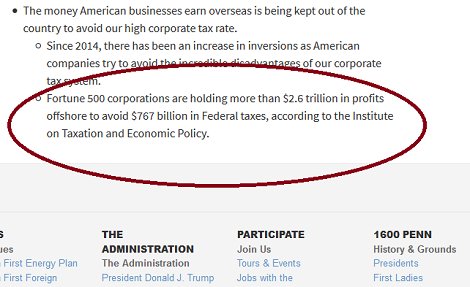
On Wednesday, reporters waiting to write about President Trump’s much-ballyhooed tax reform speech in Missouri received a fact sheet from the White House informing them that, “Fortune 500 corporations are holding more than $2.6 trillion in profits offshore to avoid $767 billion in Federal taxes, according to the Institute on Taxation and Economic Policy.”
GOP Leaders Tout Corporate Tax Cuts at Boeing and AT&T, Companies that Already Have Single-Digit Tax Rates
August 23, 2017 • By Matthew Gardner
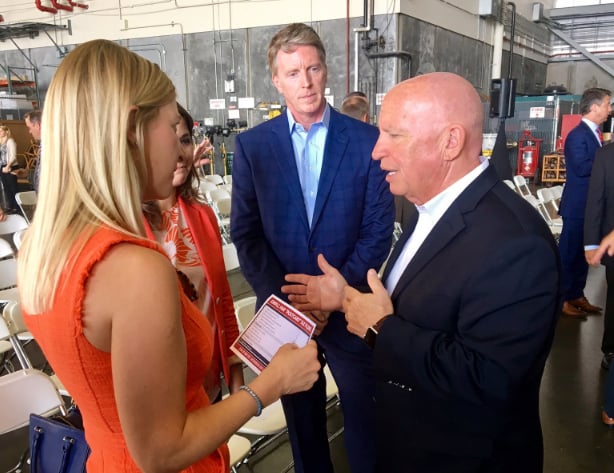
House Speaker Paul Ryan plans to visit a Boeing factory in Washington State tomorrow to promote the GOP’s ideas for tax reform, which include a deep cut in the corporate tax rate, while House Ways and Means Chairman Kevin Brady is bringing the same message today to employees of AT&T in Dallas. What is unclear is how much lower taxes for these companies can possibly go.
How to Think About the Problem of Corporate Offshore Cash: Lessons from Microsoft
August 4, 2017 • By Matthew Gardner

For a corporation with deeply American roots, Microsoft seems remarkably unable to turn a profit here. Against all odds, the Redmond, Washington-based company continues to claim that virtually all its earnings are in foreign countries. Microsoft’s latest annual report, released earlier this week, shows that over the past two years, the company enjoyed worldwide income of almost $43 billion. It claims to have earned just 0.3 percent of that—$128 million—in the United States.
Trump Administration May Make Corporate Inversions Great Again
August 4, 2017 • By Richard Phillips

During the presidential campaign, Donald Trump called out companies engaging in corporate inversions saying that one proposed inversion was “disgusting” and that “politicians should be ashamed” for allowing it to happen. Despite this rhetoric, the Trump Administration is considering rolling back critical anti-inversion rules as part of its broad regulatory review of recently issued Treasury Department regulations.
Reviving U.S. Manufacturing, One Cheesecake Factory at a Time
July 27, 2017 • By Matthew Gardner

In the latest example of how the tax code has been abused and distorted, the Cheesecake Factory is claiming the manufacturing tax deduction, apparently for manufacturing cheesecakes, burgers, and other treats.
Tax Avoidance: Nike “Just Did It” Again, Moving $1.5 Billion Offshore Last Year
July 21, 2017 • By Matthew Gardner
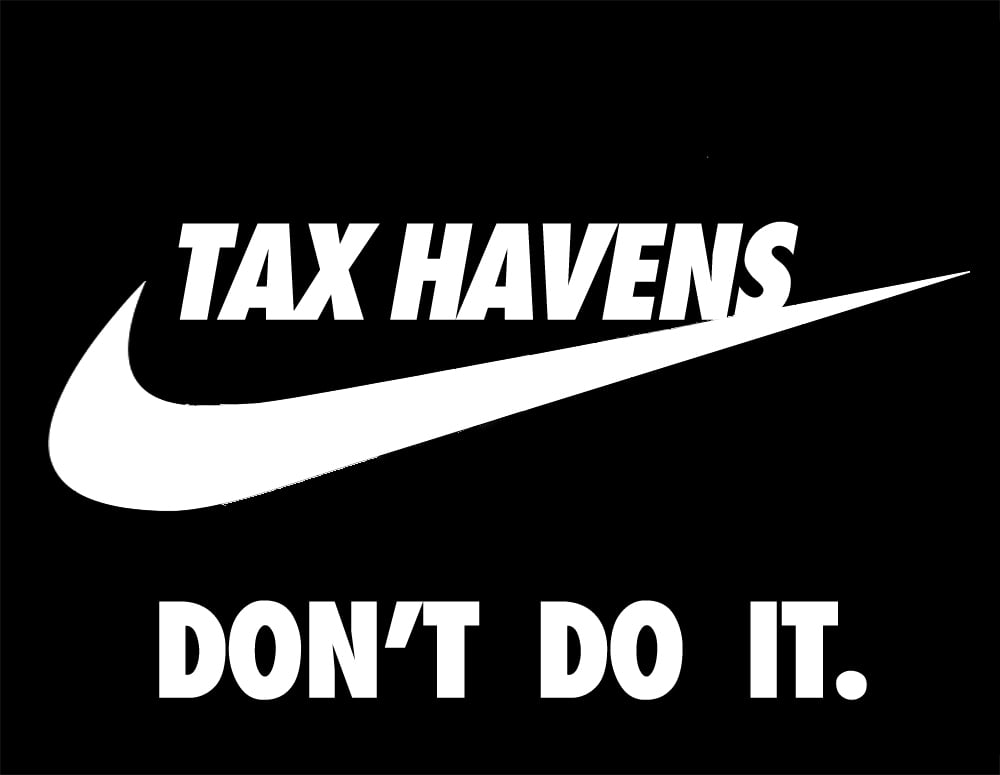
The Nike Corporation’s annual financial disclosure of income tax payments is always notable for two recurring trends: the Oregon-based company’s steady shifting of profits into offshore tax havens, and Nike’s apparent effort to conceal how it’s achieving this tax avoidance. This year’s report, released earlier this week, is no exception.
FedEx Pays Just 7.5% of Its Profits in Taxes While Pushing for a Lower Corporate Tax Rate
July 18, 2017 • By Matthew Gardner
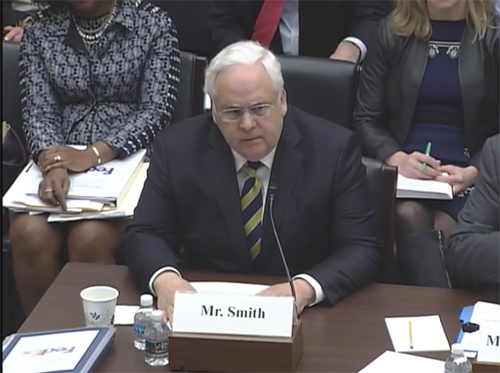
The latest annual financial report released by shipping giant FedEx is yet another reminder that where you stand often depends on where you sit. The report shows that last year FedEx paid a 7.5 percent federal income tax rate on nearly $3.6 billion of U.S. pretax income and this low rate is due in part to accelerated depreciation, a provision in the tax code that allows the company to write off capital investments faster than they wear out. It’s not surprising, then, that FedEx’s leadership is currently promoting a tax plan that would drop the company’s statutory tax rate even…

Rather than being known for its pioneering pharmaceuticals, Mylan is increasingly becoming infamous for its pioneering tax avoidance strategies. In 2015, Mylan used an inversion to claim that it is now based in the Netherlands for tax purposes. It is a Dutch company only on paper because ownership of the company was mostly unchanged and it continues to operate largely out of the United States. This maneuver has allowed the company to avoid millions in taxes on its earnings in the U.S. and abroad. But that’s not the end of Mylan’s innovation when it comes to tax planning. A new…
Congressional Hearing Highlights Problems with the Border Adjustment Tax
May 25, 2017 • By Richard Phillips

The debate over the so-called border adjustment tax (or BAT) took center stage this week when the House Ways and Means Committee held its first hearing on the topic. Despite strong support by the House Republican leadership and the Chairman of the Ways and Means Committee, Rep. Kevin Brady, the proposal faced an onslaught of criticism during the hearing from invited witnesses and members of both parties.
Tax Avoiding Companies Well Represented at Tax Reform Hearing
May 18, 2017 • By Richard Phillips
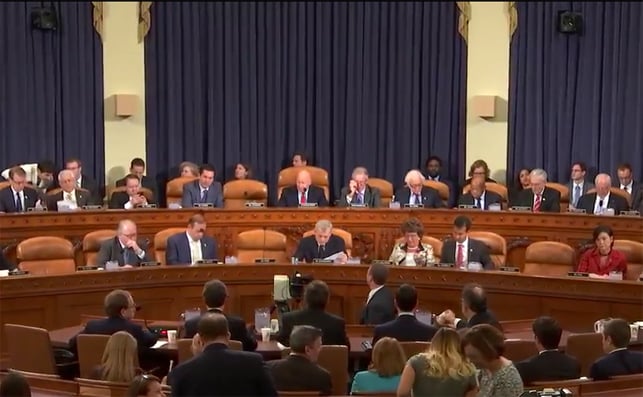
Today the House Ways and Means Committee will hold its first tax reform hearing of 2017, which marks the official opening of the tax reform debate in Congress. True tax reform, if the committee sought to achieve it, could create more jobs and ensure companies are paying their fair share by cracking down on the massive offshore tax avoidance that companies engage in. Unfortunately, the panel of witnesses for today’s hearing is largely made up of representatives of various major corporations that are beneficiaries of the loopholes in our current corporate tax laws. Given this, it seems likely that these…
Representative John Delaney’s Bills Take the Wrong Approach on Funding Infrastructure
May 9, 2017 • By Richard Phillips

Lawmakers across the political spectrum recognize the need for additional spending to maintain and upgrade our nation’s transportation infrastructure. According to the Federal Highway Administration, there is a backlog of $836 billion in needed repairs and improvements to roads and bridges and an additional $90 billion backlog of public transit projects. Maryland Democratic Representative John […]
Apple: A Case Study in Why a Tax Holiday for Offshore Cash is Indefensible
May 4, 2017 • By Matthew Gardner

The Apple corporation made waves earlier this week with its disclosure that its worldwide cash now exceeds $250 billion. Less noticed was a separate disclosure on Wednesday that the company’s offshore cash now exceeds $239 billion, meaning that more than 93 percent of the company’s cash is now held—at least on paper—abroad. This represents an […]
President Trump’s Corporate Tax Outline: At Least He Didn’t Use a Napkin
April 27, 2017 • By Matthew Gardner
The most complimentary thing that can be said about the corporate tax changes outlined by President Trump earlier this week is that they weren’t scribbled on a napkin. Unlike supply-side architect Arthur Laffer, who infamously sketched out his explanation for why tax cuts can somehow pay for themselves in this manner, the Trump Administration took […]
Does a 15 Percent Corporate Tax Rate Sound Low? For Dozens of Major Corporations, Maybe Not
April 25, 2017 • By Matthew Gardner
President Donald Trump has promised to release new details Wednesday on what he says could be “the biggest tax cut we’ve ever had.” While much is unclear about the shape this plan will take, the Wall Street Journal reported yesterday that it will include a 15 percent tax rate on corporate profits, less than half […]
The Trump Administration Should Not Reopen Offshore Loopholes Closed by Recent Regulations
April 21, 2017 • By Richard Phillips
A new executive order signed by President Donald Trump on Friday asks that Treasury Secretary Steven Mnuchin review significant tax regulations issued in 2016. The broader context of the order is that President Trump is seeking to roll back regulations across the government – many of which he claims are overly burdensome – and could […]
Profitable Fortune 500 companies in a range of economic sectors have been remarkably successful in manipulating the tax system to avoid paying even a dime in tax on billions of dollars in U.S. profits. This ITEP report examines a select, diverse group of 15 corporations' tax situations to shed light on the widespread nature of corporate tax avoidance. As a group, these companies paid no federal income tax on $21 billion in profits in 2016, and they paid almost no federal income tax on $111 billion in profits over the past five years. All but one received federal tax rebates…
How to Shut Down Offshore Corporate Tax Avoidance, Full Stop
April 7, 2017 • By Richard Phillips
A new bill introduced this week by Rep. Mark Pocan (D-WI), the Tax Fairness and Transparency Act, would rip out the offshore corporate tax avoidance system by its roots. This legislation combines into a single, comprehensive bill elements of three pieces of legislation that Rep. Pocan has proposed in previous years. While many drivers of […]
Two New Bills Would Plug Major Loopholes in Our Offshore Corporate Tax System
April 6, 2017 • By Richard Phillips
A new pair of bills introduced by Representative Lloyd Doggett (D-TX) this week would crack down on loopholes that allow corporations and individuals to avoid paying their fair share in taxes. Rep. Doggett’s Stop Tax Haven Abuse Act, which was sponsored by Senator Sheldon Whitehouse (D-RI) in the Senate, would close a number of the […]
New Analysis Compares Tax Rates Paid by Companies Lobbying for/against Border Adjustment Tax
March 31, 2017 • By Matthew Gardner
An Institute on Taxation and Economic Policy analysis finds that, on average, companies that are opposed to the Border Adjustment Tax pay higher tax rates than a coalition of companies lobbying against the tax. The Border Adjustment Tax or BAT is being proposed as part of a broader GOP plan to overhaul the corporate tax […]
A Comparative Analysis: Tax Rates Paid by Companies for and Against the Border Adjustment Tax
March 30, 2017 • By Richard Phillips
It’s often noted that corporate tax reform is difficult, in part, because it creates so many winners and losers. As Congress turns its attention to federal corporate tax reform, the House GOP’s proposed border adjustment tax, which is intended to raise enough revenue to justify cutting the corporate tax rate from 35 to 20 percent, […]
With the failure of legislation to repeal the Affordable Care Act, the Trump administration and Republicans lawmakers are moving on to corporate tax reform. At the heart of this debate is the problem of corporations shifting their profits to foreign tax havens to avoid U.S. income taxes. A new report by the Institute on Taxation […]
Fortune 500 Companies Hold a Record $2.6 Trillion Offshore
March 28, 2017 • By Matthew Gardner
All told, Fortune 500 corporations are avoiding up to $767 billion in U.S. federal income taxes by holding more than $2.6 trillion of "permanently reinvested" profits offshore. In their latest annual financial reports, 29 of these corporations reveal that they have paid an income tax rate of 10 percent or less in countries where these profits are officially held, indicating that most of these profits are likely in offshore tax havens.
Corporations’ Offshore Cash Hoard Grew to $2.6 Trillion in 2016
March 28, 2017 • By ITEP Staff
U.S. corporations now hold a record $2.6 trillion offshore, a sum that ballooned by more than $200 billion over the last year as companies moved more aggressively to shift their profits offshore, according to a new report, Fortune 500 Companies Hold a Record $2.6 Trillion Offshore, released today by the Institute on Taxation and Economic Policy (ITEP).
For years, the number one tax policy talking point from corporate lobbyists has been the claim that the United States has the highest corporate tax rate in the world. The story then goes that this high tax rate is driving away business and Congress should move to dramatically lower it. A new study by the […]
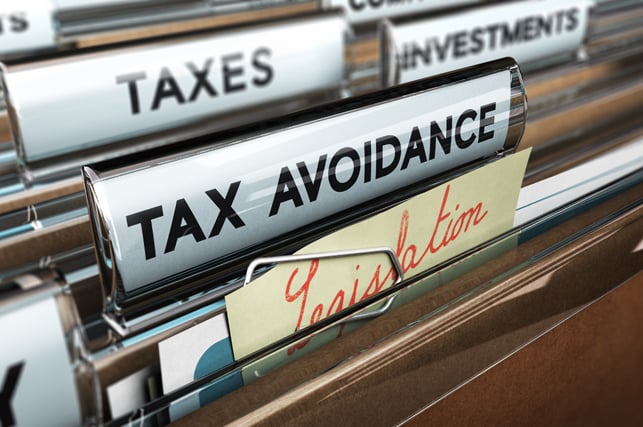
Profitable corporations are subject to a 35 percent federal income tax rate on their U.S. profits. But many corporations pay far less, or nothing at all, because of the many tax loopholes and special breaks they enjoy. This report documents just how successful many Fortune 500 corporations have been at using loopholes and special breaks over the past eight years. As lawmakers look to reform the corporate tax code, this report shows that the focus of any overhaul should be on closing loopholes rather than on cutting tax rates.
ITEP’s corporate tax research examines the tax practices of major corporations. Besides its corporate study on average effective tax rates paid by the nation’s largest, most profitable corporations, throughout the year, ITEP produces research on subjects such as offshore cash holdings, tax haven abuse, executive stock options and other tax loopholes. See ITEP’s more recent study of profitable corporations’ tax rates.
